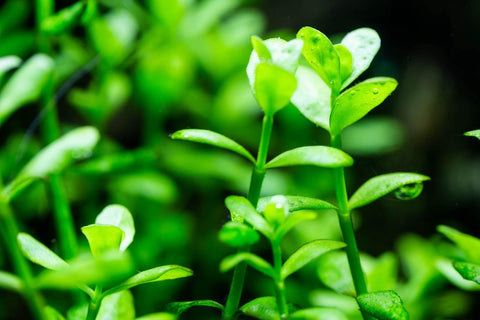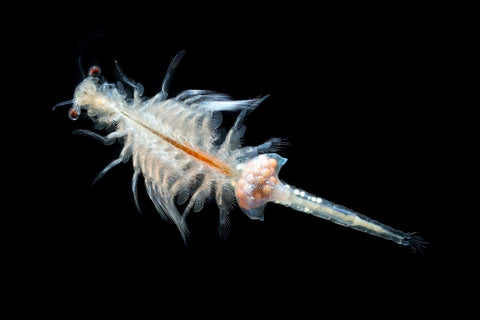You may have already asked yourself this question and then asked a search engine for the right answer. You will have quickly noticed that there are different views on the subject.
Some are of the opinion that only a specialist who has completed the relevant training in the field of aquaristics is considered an experienced aquarist, while others even require a degree.
If you want to bury your head in the sand now because you have no such qualifications, then we can reassure you at this point. Neither of these two examples mentioned make an experienced aquarist. In this article, we would like to show you what really matters.
Education is the key
In order to become an experienced aquarist, you need to be willing to study the subject matter of aquaristics in depth. This subject matter can be very dry at times, but will inform you about the most important basics of aquaristics
In order to understand the basics of aquaristics, it is important that you read books and articles in specialist journals so that you can internalize the basic knowledge of the various aspects of aquaristics, including water chemistry, habitat design, fish and plant species as well as care and nutrition. The more you know about this, the better you will be able to meet the needs of aquarium inhabitants and aquarium plants.
Practical experience through keeping them yourself
Another essential point is practical experience. Theory alone does not make an experienced aquarist. Theory and practice can often be very far apart, which is why practical experience is a must
So be sure to set up your own aquarium and gain the all-important practical experience. Observe your aquarium inhabitants and aquarium plants and learn how to maintain aquarium technology. Does your experience match the theory or where have you noticed differences?
Gain valuable knowledge through practical experience and use this knowledge to further develop your aquarium keeping skills.
Network with other aquarists
Exchanging knowledge and experiences with other aquarists is a great way to expand your knowledge. Join an aquarium community, attend aquarium trade shows or take part in local aquarist meet-ups. You can learn from the experiences of others, get valuable tips and make new friends. Networking with other aquarists allows you to benefit from different perspectives and expertise. Passionate aquarists will be happy to help you and support you in your project. By the way, experienced aquarists who put their heart and soul into the hobby never boast about themselves, but rather impress with their many years of practical experience and it is precisely these values that will take you a step further on the path to becoming an experienced aquarist yourself.
Learning advanced techniques
Once you have mastered the basics, you can develop your skills further by learning advanced techniques. Aquascaping, the art of creating underwater landscapes, and breeding fish can be exciting challenges. Take part in workshops, training or courses to expand your expertise and learn new skills. These advanced techniques will help you to make your aquarium even more appealing and deepen your understanding of aquatics.
Regular care and observation
An experienced aquarist is also characterized by his careful care and observation of his aquarium. Take time to check your aquarium regularly, measure the water values and make adjustments if necessary. Observe the behavior of your fish and plants to identify potential problems at an early stage. Regular care and observation are crucial to ensure the health and well-being of your aquarium inhabitants and aquarium plants.
Share your knowledge
An experienced aquarist is not only someone who has specialist knowledge, but is also willing to share this knowledge with others. You can start a blog, be active in forums or take part in aquarium courses to pass on your knowledge. By sharing your knowledge, you help other aquarists improve their skills and learn from their experiences and perspectives. Because, as in other areas, you never stop learning in aquatics and that's another exciting aspect of this wonderful hobby.
Make mistakes and learn from them
It's important to understand that mistakes are part of the learning process. Every aquarist, no matter how experienced, occasionally makes mistakes. When something goes wrong, take it as an opportunity to learn from it and develop your skills. Make a note of what went wrong and try to improve it next time. By learning from mistakes, you will continuously expand your knowledge and skills. Every aquarist has made mistakes and anyone who says otherwise is not being honest with themselves.
Staying up to date
Aquariums are a constantly evolving hobby. New technologies, findings and trends are constantly emerging. To remain an experienced aquarist, it is important to stay up to date. Read trade magazines, visit aquarium websites and attend professional events to stay informed about the latest developments. By actively informing yourself about new methods and findings, you will remain an expert in your field.
Patience and dedication
Aquariums require patience and dedication. It takes time to become an experienced aquarist. Be patient with yourself and your fish, just like aquarium plants. Take the time to observe and enjoy your aquarium. Over time, you will improve your skills and become a more experienced aquarist.
By combining education, practical experience, interaction with other aquarists and a willingness to share your knowledge, you can continually develop your skills as an aquarist. Let your passion for aquatics guide you and enjoy the wonderful world underwater.
As you have noticed, you do not need any training or studies in the field of aquaristics to become an experienced aquarist, just the enthusiasm and willingness to delve deeper into the hobby of aquaristics. We would like to take this opportunity to wish you lots of great experiences and, of course, every success!




Comments (0)
There are no comments for this article. Be the first one to leave a message!